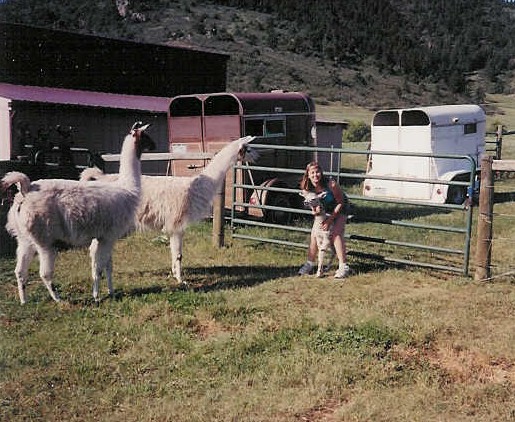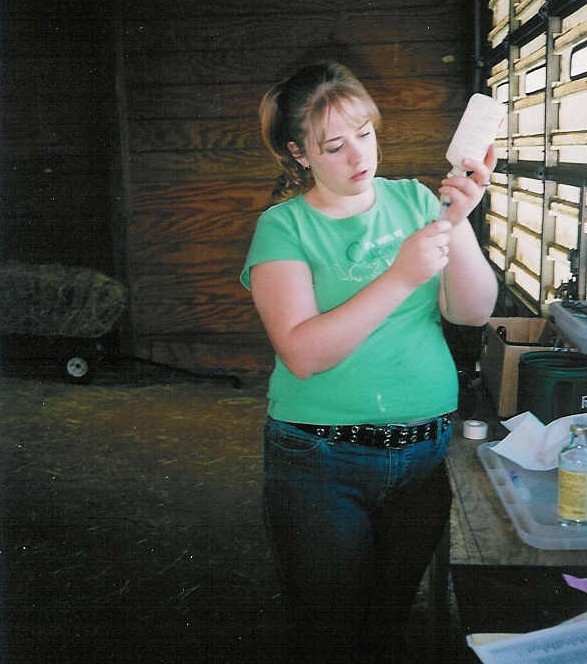



Northern Colorado Llamas (NCL) strives to be self-sufficient and
provide most llama care ourselves. We do spring vaccinations,
spring and fall worming, and toe nail trimming. Cria's are vaccinated
at 3 months of age. Someone is here almost all the time especially
when we have expecting females close to their due dates. Most
llamas deliver without complications or help but we are trained
and experienced at helping with difficult births. Each baby (Cria)
is weighed; checked for abnormalities or signs of being premature,
naval treated with iodine solution and given a mild enema. If
weather conditions are poor the female and Cria are put in a clean
dry barn. Each Cria is dried and observed to make sure it nurses
and gets sufficient colostrum and milk. We have a supply of llama
and goat colostrum on hand if an emergency arises. Usually the
Cria requires no special care and is left in the pasture with
their mother until 6 months of age. Then we wean them with other
crias for company and to ease the weaning stress. Training begins
for llamas after they are weaned. See
TRAINING.
NCL has treated many different types of injuries and illnesses
including snakebite, mastitis, scrapes, cuts, tick paralysis,
etc. A llama chute
is used for restraint when necessary to provide
safety for the llama and the handler. The chute is designed and
built by NCL. Many medical supplies are on hand at all times including
needles, syringes, bandages and wraps, slings, tubes, medication,
ointments, etc.
Our barn has lights, electrical outlets, water hydrant, a scale
for weighing llamas, and separate stalls. We draw blood ourselves
for progesterone test, or if a veterinarian requires such for
diagnosis. NCL uses high tensile fencing because of its durability
and safety for the llamas. No barbed wire is used on our property.
Cross fencing provides us with numerous pastures for ease with
llama and pasture management.
When a veterinarian service is required our vet trained at Colorado
State University (CSU), has a lot of experience with llamas, and
is only 3 miles from our ranch. The CSU veterinary hospital is
located in Ft. Collins and is a recognized leader in llama research,
and medicine. We are lucky to have CSU close and available.
Accurate record keeping is important and NCL provides records
on breeding dates, birthing dates, medical, training, and other
important notes though out each llamas life.
Please call and come for a ranch tour to see our facilities. We
will be glad to answer questions about any llama care issues.